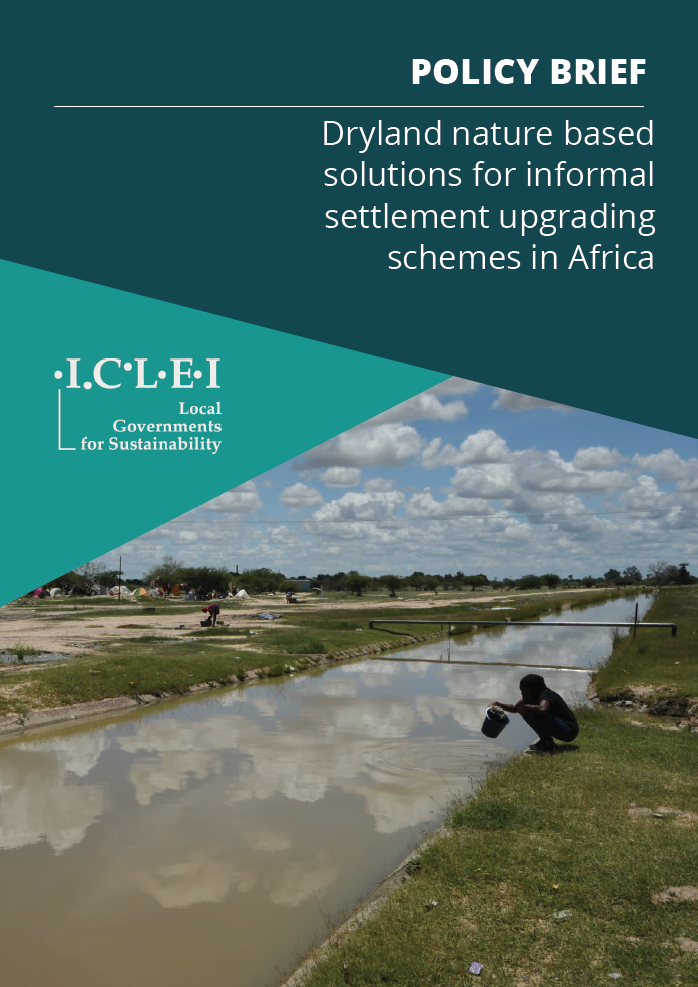Upgrading schemes are increasingly used by city and national governments to address rapid unplanned peri-urban growth, improve infrastructure services and living conditions, and enhance resilience to climate change for the most marginalised vulnerable urban populations. Part of this upgrading process involves introducing alternative tenure systems to address innovation and sustainable development challenges.
Nature-based solutions (NBS) are actions which work with and enhance nature to produce a diverse range of services on which human well-being depends. Building protecting and restoring NBS is particularly useful in resource-constrained informal settlements, due to cost-effectiveness, health and economic co-benefits. In some instances, in-situ upgrading programmes combined with flexible tenure systems and NBS have the scale and scope to impact a significant proportion of urban populations. Namibia is pioneering this approach, having chosen three pilot cities, namely Windhoek, Gobabis and Oshikati, as part of the roll-out of its national Flexible Land Tenure Act1. Among many, this act aims to fill the gap in tenure regularisation for the most vulnerable groups.
Based on an ongoing study in these cities looking at rural-urban climate resilient futures in Namibia, Kenya and Tanzania through the “Peri-Urban Resilient Ecosystems” partnership, the following ten practical recommendations provide guidance for urban policy makers, planners, designers and local authorities in dryland areas. The ten practical recommendations can strengthen informal settlement upgrading schemes by optimising NBS and the ecosystem services they provide. Key themes relate to urban development for inclusive prosperty, informed decision-making, innovation and experimentation, integration and complementarity.
